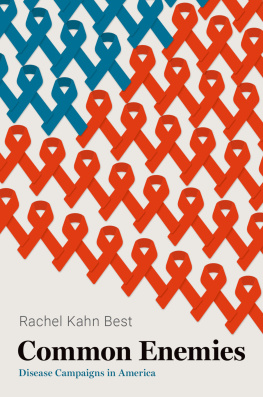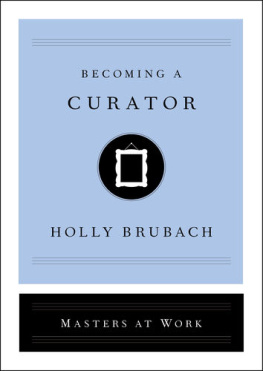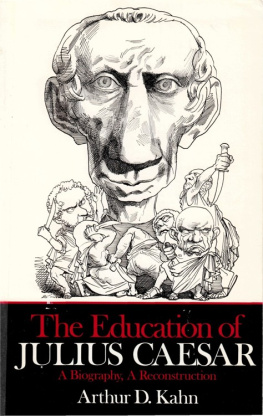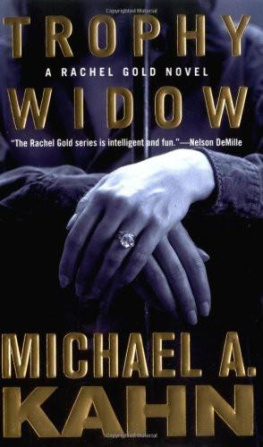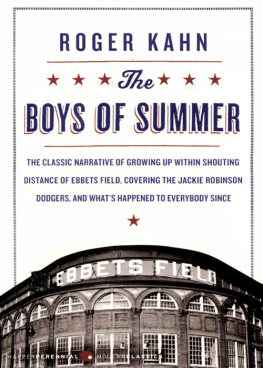Best Rachel Kahn - Common Enemies
Here you can read online Best Rachel Kahn - Common Enemies full text of the book (entire story) in english for free. Download pdf and epub, get meaning, cover and reviews about this ebook. year: 2019, publisher: Oxford University Press USA - OSO, genre: Politics. Description of the work, (preface) as well as reviews are available. Best literature library LitArk.com created for fans of good reading and offers a wide selection of genres:
Romance novel
Science fiction
Adventure
Detective
Science
History
Home and family
Prose
Art
Politics
Computer
Non-fiction
Religion
Business
Children
Humor
Choose a favorite category and find really read worthwhile books. Enjoy immersion in the world of imagination, feel the emotions of the characters or learn something new for yourself, make an fascinating discovery.
- Book:Common Enemies
- Author:
- Publisher:Oxford University Press USA - OSO
- Genre:
- Year:2019
- Rating:3 / 5
- Favourites:Add to favourites
- Your mark:
- 60
- 1
- 2
- 3
- 4
- 5
Common Enemies: summary, description and annotation
We offer to read an annotation, description, summary or preface (depends on what the author of the book "Common Enemies" wrote himself). If you haven't found the necessary information about the book — write in the comments, we will try to find it.
Common Enemies — read online for free the complete book (whole text) full work
Below is the text of the book, divided by pages. System saving the place of the last page read, allows you to conveniently read the book "Common Enemies" online for free, without having to search again every time where you left off. Put a bookmark, and you can go to the page where you finished reading at any time.
Font size:
Interval:
Bookmark:


Oxford University Press is a department of the University of Oxford. It furthers the Universitys objective of excellence in research, scholarship, and education by publishing worldwide. Oxford is a registered trade mark of Oxford University Press in the UK and certain other countries.
Published in the United States of America by Oxford University Press
198 Madison Avenue, New York, NY 10016, United States of America.
Oxford University Press 2019
All rights reserved. No part of this publication may be reproduced, stored in a retrieval system, or transmitted, in any form or by any means, without the prior permission in writing of Oxford University Press, or as expressly permitted by law, by license, or under terms agreed with the appropriate reproduction rights organization. Inquiries concerning reproduction outside the scope of the above should be sent to the Rights Department, Oxford University Press, at the address above.
You must not circulate this work in any other form and you must impose this same condition on any acquirer.
Library of Congress Cataloging-in-Publication Data
Names: Best, Rachel Kahn, 1982 author.
Title: Common enemies : disease campaigns in America / Rachel Kahn Best.
Description: New York, NY : Oxford University Press, [2019] |
Includes bibliographical references.
Identifiers: LCCN 2018059881 | ISBN 9780190918415 (pbk. : alk. paper) |
ISBN 9780190918408 (hardcover : alk. paper) | ISBN 9780190918422 (Universal PDF) | ISBN 9780190880989 (epub) |
ISBN 9780190918439 (electronic publication)
Subjects: LCSH: Medical policyUnited States. |
Health services accessibilityUnited States. | Social medicineUnited States. |
Social movementsUnited States.
Classification: LCC RA418.3.U6 B47 2019 |
DDC 362.10973dc23
LC record available at https://lccn.loc.gov/2018059881
This project began as my dissertation in the sociology department at UC Berkeley, guided by four insightful and generous dissertation committee members. Mike Hout was always ready with perceptive comments on graphs and tables and advice on how to write prose that people might actually want to read. Each meeting with him yielded new ways to express quantitative data clearly. Meanwhile, some of the best ideas in this book were incubated in Ann Swidlers office. Ann is an uncommonly generous thinker. Each time I met with her, she would imagine the best possible argument I could make with my data and then forever remember it as my argument. Laurie Edelman was a sounding board, strategist, and collaborator, helping me navigate the process of research design and publication. Ann Keller contributed her expert understanding of patients activism and provided insightful, detailed comments on my drafts. Other Berkeley faculty generously provided advice and comments, including Claude Fischer, Neil Fligstein, Marion Fourcade, Calvin Morrill, and Margaret Weir. I benefited from an incredible community of sociology graduate students, including many who read drafts of dissertation chapters. Special thanks go to Hana Brown, Sarah Garrett, Alex Janus, Daniel Laurison, Laura Mangels, and Sarah Quinn. At Berkeley, I also benefited from feedback from the Inequality Workshop; the Research Group on Multilevel Modeling; the Center for Culture, Organizations, and Politics; and the Empirical Legal Studies Workshop. A fantastic team of Berkeley undergraduates helped me collect data on congressional hearings: Caitlin Green, Sophie Harrison-Wong, Katherine Hood, David Lee, Willie Jo Marquez, Greg Mooney, Kate Sousa, and Shanna Zhu. When I traveled to NIH headquarters, Michael Boyle of the NIH Office of Budget and David Cantor and Barbara Harkins of the Office of NIH History provided invaluable assistance with data collection.
After completing my PhD, I collected additional data for the book as a Robert Wood Johnson Foundation Scholar in Health Policy Research at the University of Michigan. During my fellowship, Chris Bail, Rick Hall, Daniel Lee, Helen Levy, and Edward Norton were especially generous with their time and feedback. The administrative support of Gail Pieknik and Theresa Ramirez facilitated the project immensely. Nate Carroll, Anup Das, David Jones, Nelson Saldana, Mrinalini Tavag, Jay Thaker, and Qing Zheng provided incomparable research assistance. Staff at the Schlesinger Library at the Radcliffe Institute for Advanced Study helped me navigate the archives.
Drawing on data from my dissertation and postdoctoral research, I wrote the book while a faculty member in the Department of Sociology at the University of Michigan. My Michigan colleagues have been impossibly generous, reading drafts of my work and providing sage advice. Thanks are due to Barbara Anderson, Renee Anspach, Elizabeth A. Armstrong, Jennifer Barber, Deirdre Bloome, Sarah Burgard, Rob Jansen, Jaeeun Kim, Greta Krippner, Sandra Levitsky, Roi Livne, Alexandra Murphy, Jason Owen-Smith, Pam Smock, and Kiyoteru Tsutsui. Scholars from other campuses, including Elizabeth M. Armstrong, Phil Brown, Paul Burstein, Steve Epstein, Emily Marshall, Isaac Martin, Stefan Timmermans, and Edward Walker, also provided comments and advice. I owe an especially large debt to Barbara Anderson, Renee Anspach, Elizabeth A. Armstrong, Elizabeth M. Armstrong, Jessica Garrick, Sandra Levitsky, Roi Livne, Jason Owen-Smith, and Edward Walker for reading the full manuscript. I received fantastic research assistance from Jessica Garrick, Dana Kornberg, and Johanna Masse. Librarians Hailey Mooney and Justin Joque provided important advice and assistance.
I also received generous and insightful feedback from anonymous reviewers at the American Sociological Review; the Journal of Health Politics, Policy, and Law; and Oxford University Press. Both journals provided permission to reuse portions of the articles I published there. My editor, James Cook, has been a thoughtful and calming influence, helping shepherd the manuscript through the publication process. I received excellent feedback at several seminars, workshops, and conferences, including talks at the University of Arizona, Duke University, the University of Michigan, and the annual meetings of the American Sociological Association and the Robert Wood Johnson Foundation Scholars in Health Policy Research. Research funds were provided by the Office of NIH History; the UC Berkeley Science, Technology and Society Center; Berkeley Laws Empirical Legal Studies fellowship; the Robert Wood Johnson Foundation; and the University of Michigan.
I am also grateful for my friends and family. Nick and Yen Azzaro, Todd and Tanya Berenz, Erin Bonar, Zlato Buchs Fagundes, Kate Duchowny, and Grace and Edward Kim spent a Thanksgiving dinner helping me brainstorm titles for this book. My grandfather, Alfred Kahn, an economist, encouraged me to do research that would make the world better and not just be an exercise in econometrics. My mother, Hannah Kahn, a choreographer, showed me how to turn creativity into daily labor, sometimes exhilarating and often tedious, and how to manage the anxiety associated with letting people see your completed work. My father, Arthur Best, a law professor, inspired a commitment to logical thinking and a fascination with empirical patterns and always combined productivity with humor and self-deprecation. My husband, Holice Kil, has shared laughter and non-sociological conversation and has worked with me to build an egalitarian marriage, a goal that required wrestling with more biological, logistical, and cultural constraints than I ever expected. Our children, Fred and Edie, have provided a welcome break from research and writing. I apologize to them for this books disappointing lack of superheroes, animals, and illustrations.
Font size:
Interval:
Bookmark:
Similar books «Common Enemies»
Look at similar books to Common Enemies. We have selected literature similar in name and meaning in the hope of providing readers with more options to find new, interesting, not yet read works.
Discussion, reviews of the book Common Enemies and just readers' own opinions. Leave your comments, write what you think about the work, its meaning or the main characters. Specify what exactly you liked and what you didn't like, and why you think so.

